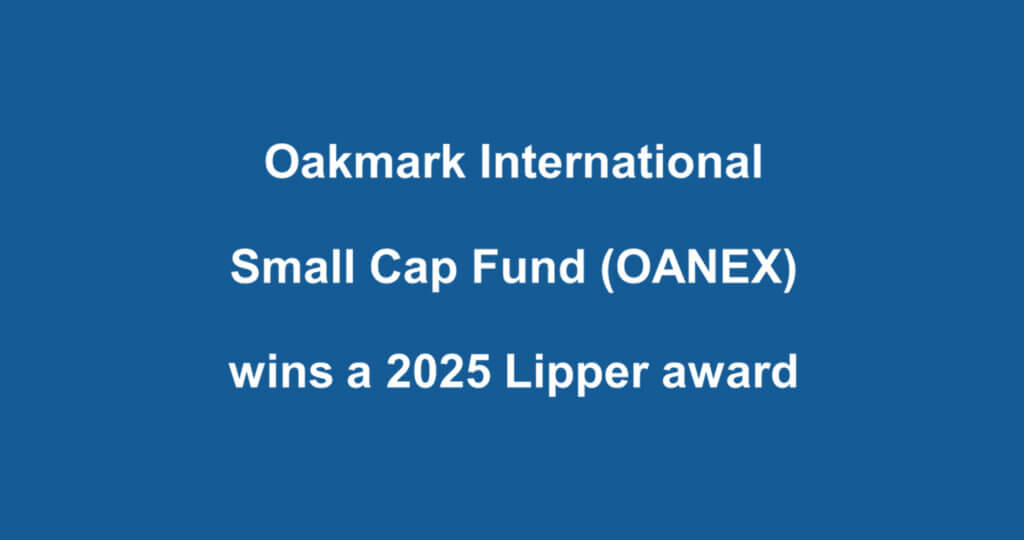Fellow Shareholders,
As I write to you, volatility and uncertainty in the market are drawing comparisons to what occurred in 2008-2009. Many pundits and observers are tripping over themselves to come up with the most fearful scenario. With this negative noise level steadily rising, it is understandable the global stocks, including some held in our Funds, are experiencing a period of weakness. Over the last three months alone, international stocks are down almost 20%, and for the year they are down by almost 10%. The U.S. equity market, down less than 9% year to date, is actually one of the better-performing markets.
Sovereign Debt
Like 2008, today’s concern surrounds debt. Back then, the problem was private indebtedness, whereas today’s worry is public indebtedness. Broadly speaking, global political gridlock is spooking the markets, and more specifically, how to deal with Greece’s acute debt problem. The worries that began in the peripheral countries of the eurozone have moved deeper into the heart of the continent. For example, concerns about Italian sovereign debt have suddenly appeared, despite the fact that Italy’s debt-to-GDP ratio of around 110% is not materially different from what it was five years ago. There are questions about whether Italy, Spain and even France have the ability to pay off their obligations, even as each of these countries have taken steps to sharply cut their deficits. Italy projects a balanced budget by 2013, for instance, while Spain foresees a deficit of less than 3% of GDP next year.
I would argue, based on evidence we see today, that Mr. Market is again overreacting to the current situation. As mentioned in my last letter, it is unlikely that the 14 million inhabitants of Greece will be able to manage the $400+ billion worth of debt now being carried on the nation’s books. But what is indeed ugly is how poorly the political class of Europe has dealt with this situation. No less ugly is how U.S. politicians have failed to set aside their partisan differences in order to address our own public-debt excesses. The 24-7 display of poor political leadership globally has contaminated the investment environment.
All of this said, I believe that the market’s response to events in Greece and incompetent politicians—a global stock market rout—is overblown.
The Sunnier Side
The market is behaving as if each indebted country— Italy, Spain, Ireland and even France—is in the same dire circumstance as Greece. Even the U.S. experienced a debt downgrade by one rating agency. While a widespread default scenario is possible, it is EXTREMELY unlikely.
As of this writing, the market has assigned roughly a 5% chance that Italy will default on its five-year bonds, which is borderline absurd. Yes, Italy has too much debt. Yes, Italy needs structural change. Yes, it has an ineffective prime minister. But it is also a country of vast wealth. Household debt represents 65% of disposable income, compared to 98% for the eurozone as a whole and 148% for the U.S. The gross savings rate in Italy is 12.1%, more than double that of the U.S. Not only is Italy’s budget projected to be balanced by 2013, the government still has a large pool of salable assets.
Many European financials have lost more than 30% of their value since early August on concerns that Italian, Spanish and French government paper was not “money-good” and that, as a result, European banks were highly leveraged. Our view is that the market’s emotion is not consistent with economic fact, and thus we continue to use these severe dips to add to our holdings of quality financials.
A final point—despite all of the market turmoil and lack of confidence, the “real” global economy seems to be holding up quite well, due in large part to sustained growth in the large emerging nations. During the horrible month of August, for example, BMW achieved its best-ever August sales result in terms of global auto sales. We have met with dozens of companies from all over the globe that sell their products to customers all over the globe, and none have yet to see a severe slowdown. And while the IMF has recently lowered its estimate of global economic growth, that growth is still expected to be a respectable 4% for 2011 and the same in 2012.
Conditions in global equity markets are volatile and erratic, with changes in share prices reflecting short-term macro fears rather than long-term business fundamentals. This is often the case, and when it arises, it provides us with investment opportunity. Emotion in the market makes it difficult for businesses, but in general, they are still growing and earning acceptable returns. As such, we remain confident that by remaining disciplined and focused on the long term, we are well-positioned for future success.
Past performance is no guarantee of future results. The performance data quoted represents past performance. Current performance may be lower or higher than the performance data quoted. The investment return and principal value vary so that an investor’s shares when redeemed may be worth more or less than the original cost. The performance of the Funds does not reflect the 2% redemption fee imposed on shares redeemed within 90 days of purchase. To obtain the most recent month-end performance data, view it here.
Investing in foreign securities presents risks that in some ways may be greater than U.S. investments. Those risks include: currency fluctuation; different regulation, accounting standards, trading practices and levels of available information; generally higher transaction costs; and political risks.
The stocks of smaller companies often involve more risk than the stocks of larger companies. Stocks of small companies tend to be more volatile and have a smaller public market than stocks of larger companies. Small companies may have a shorter history of operations than larger companies, may not have as great an ability to raise additional capital and may have a less diversified product line, making them more susceptible to market pressure.
The discussion of the Funds’ investments and investment strategy (including current investment themes, the portfolio managers’ research and investment process, and portfolio characteristics) represents the Funds’ investments and the views of the portfolio managers and Harris Associates L.P., the Funds’ investment adviser, at the time of this letter, and are subject to change without notice.








